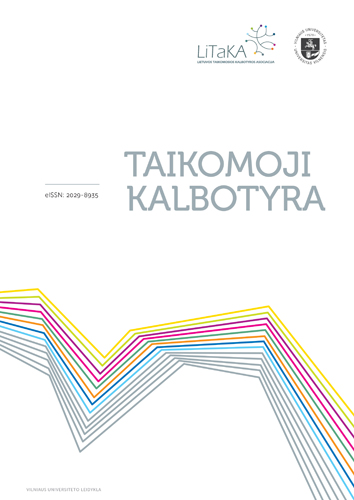Kognityvinis požiūris į žodžių darybą
Cognitive approach to word formation
Author(s): Lina InčiuraitėSubject(s): Morphology, Cognitive linguistics
Published by: Vilniaus Universiteto Leidykla
Keywords: concept; morphological expressions; prototipe; periphery; domain; schema; instances;
Summary/Abstract: Structural approach to word formation in Lithuanian is still dominant, meanwhile cognitive insights have not been applied yet. The object of this paper is the aspects of cognitive grammar to word formation. In the article, cognitive semantic notions and their application to the morphological analysis of cognitive grammar are introduced. In the cognitive theory of grammar, symbolicity plays a significant role. The essence of cognitive grammar is based on the idea that language units are bipolar language signs. A linguistic unit consists of phonological and semantic poles which are linked by a symbolic structure. A category is a network of meanings of a derivational morpheme, which, as in the case of lexical category, is structured in terms of prototype and periphery. The prototype of a category is considered to be the most typical member, whereas other senses of the prototype comprise the periphery. Morphological expressions are closely related to each other and comprise cognitive domains. A domain is perceived as knowledge in terms of which derivational morphemes can be interpreted. Compositionality is a process when the composite structure is determined by the meanings of its constituents. This process plays an integral part in understanding the senses of new morphological expressions. Full and partial compositionality types are typical of morphological expressions. In compounding, full compositionality is endocentric, meanwhile partial compositionality is exocentric. A large number of units are pertinent to each other by schema and instance relations. A schema is defined as a general model made of instances. The schema reflects the general meaning of instances. Due to further elaboration the instance becomes a basis for a new schema and its elaborating elements become new instances.
Journal: Taikomoji kalbotyra
- Issue Year: 2013
- Issue No: 2
- Page Range: 1-24
- Page Count: 24
- Language: Lithuanian

